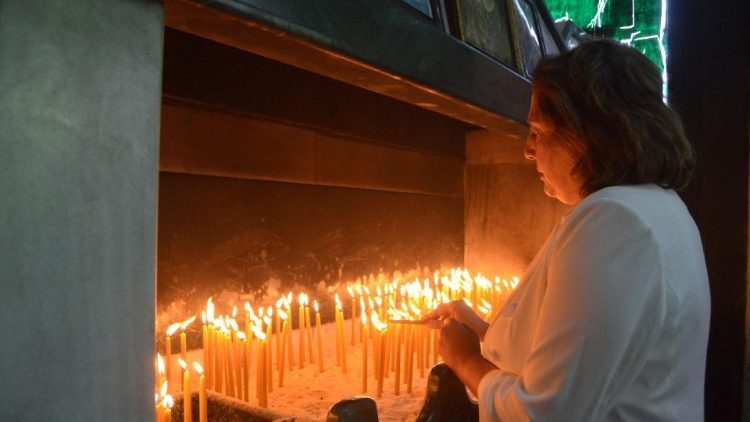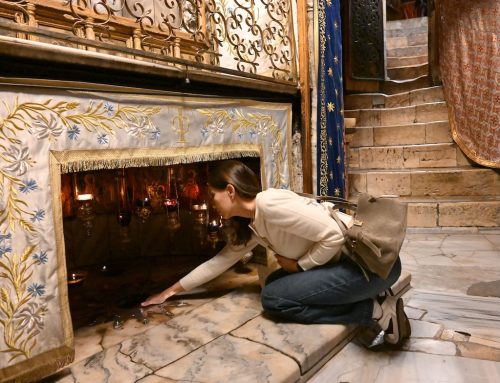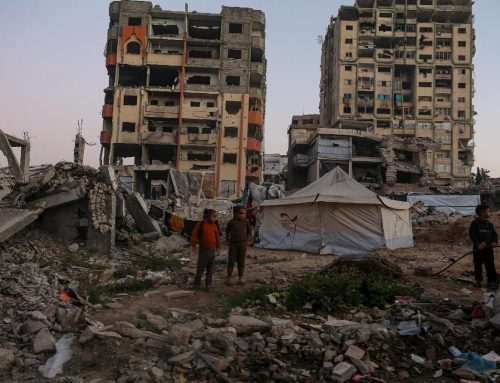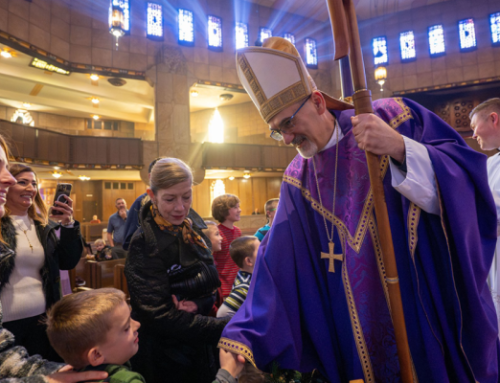To understand better Christianity’s roots, one should better acquaint oneself with its roots in Jordan.
The widely-anticipated special exhibit ‘Jordan: Dawn of Christianity,’ set to debut in the Vatican’s Palazzo della Cancelleria on 31 January, will be the perfect way to discover those Christian roots.
Organized by the Ministry of Tourism and Antiques, and the Jordan Tourism Board, Vatican News was among invited journalists at a special press event at the St. Regis Hotel in Amman on Wednesday that gave an early look at the soon-to-premiere exhibition.
Premiering soon in the Vatican
This immersive exhibit, which will remain open in the Vatican until 28 February, coincides with the 30th anniversary of diplomatic relations between Jordan and the Holy See, as well as the Vatican’s Jubilee Year 2025 celebrations under the theme ‘Pilgrims of Hope.’ The exhibit also falls closely to the 60th anniversary of Pope St. Paul VI’s visit to Jordan in 1964.
‘Jordan: Dawn of Christianity’ will feature a unique collection of over 80 artifacts dating back to the First Century AD and extending through the Byzantine, Islamic, and Hashemite eras.
Moreover, it will also include audiovisual elements that take visitors on a captivating journey through 2,000 years of history, witnessing the birth, thriving, and enduring legacy of Christianity in Jordan.
Transporting pilgrims to Jordan’s sacred sites
The expo will transport those visiting the sacred past of the Middle Eastern nation seen by many as the cradle of Christianity.
Christians in Jordan make up about 4 percent of the nation’s population of 11 million people.
In particular, it will highlight five sites, most notably Maghtas, the Baptism site of Jesus Christ, where John the Baptist baptized the Lord, marking the birthplace of Christianity itself.
Pilgrims will be able to learn about Mount Nebo, the final resting place of Moses; Our Lady of the Mountain Church commemorating the Blessed Mother; Tel Mar Elias, the Prophet Elijah’s birthplace; and Machaerus, where pilgrims will learn about St. John the Baptist’s martyrdom.
During the event in Amman, the distinguished speakers stressed the exhibit is not just a collection of artifacts, but a celebration of peace, unity, and the enduring legacy of Christianity in Jordan, and that it invites believers and all people to rediscover the nation’s roots of faith and heritage.
Minister of Tourism: ‘Safeguarding Christian heritage’
The event began with welcoming remarks from Jordan’s Minister of Tourism and Antiquities, Lina Annab, in which she reaffirmed Jordan as a “cradle of Christianity,” and how this exhibition took place with close cooperation with the Vatican.
“This exhibition,” she underscored, “is an opportunity to celebrate the roots of the faith and enhance our commitment to maintain these holy sites,” as she in a special way recalled how Jesus’ Baptism site is “one of the most important religious sites in the world.”
She explained to the press how the exposition, which she highlighted is “the first of its kind,” is expected to be “mobile,” explaining that it will start in the Vatican but then it is expected to ‘travel’ to other sites internationally over time.
In this way, many pilgrims across the world can become acquainted with the some 90 artifacts from 30 sites, many of which are UNESCO-recognized.
Finally, Minister Annab stressed that this initiative reaffirms “Jordan’s efforts to safeguard Christians in Jordan and the region” as an “essential part of its past, present, and future.”
Apostolic Nuncio: Christians in Middle East represent continuity of faith
Next, the Apostolic Nuncio to Jordan, Archbishop Giovanni Pietro Dal Toso, clarified the framework of the initiative.
The Holy See has diplomatic relations with some 190 nations and various other international organizations. Relations with Jordan began about 30 years ago, and that was commemorated with the visit to the nation last year of Archbishop Paul Richard Gallagher, the Vatican Secretary for Relations with States and International Organizations.






